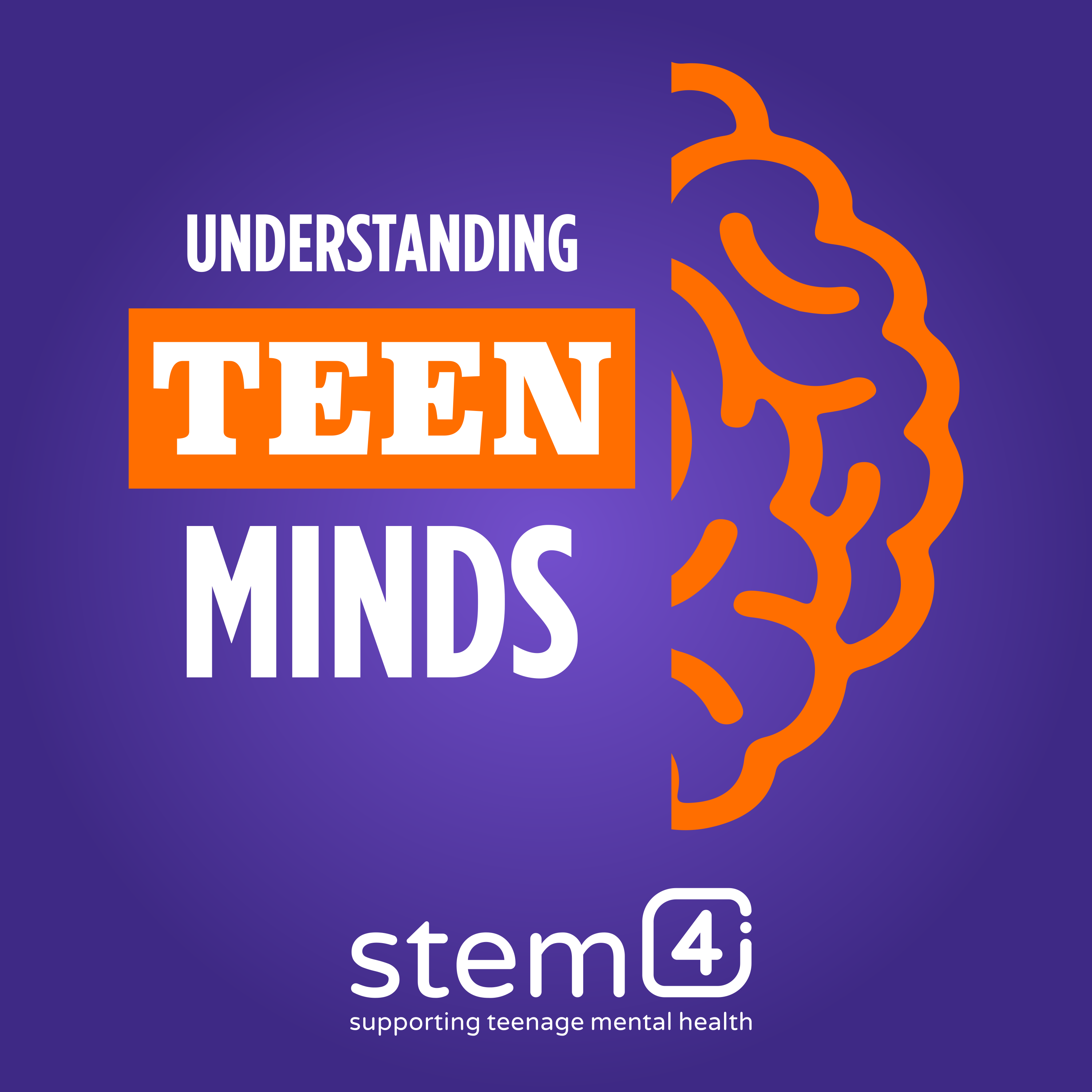Eating disorders
For health professionals
What are eating disorders?
Eating disorders: Anorexia Nervosa, Bulimia Nervosa and Binge Eating Disorder (compulsive over-eating) are serious mental illnesses affecting 1.6 million people in the UK. They are most likely to develop during teenage years and although more girls are affected, around a quarter of those who experience an eating disorder at school age are boys.

Why not give our podcast a listen?
In addition to the information on this page, you might also find our podcast, Understanding Teen Minds, useful, in which stem4 founder and Consultant Clinical Psychologist, Dr. Nihara Krause, shares her extensive knowledge and experience in several episodes developed for GPs on eating disorders in young people. Click here for more.
What signs and symptoms indicate an eating disorder?
Eating disorders are a group of mental illnesses characterised by a severe disturbance in eating habits with an aim for weight (and other) control. They cause significant distress to the sufferer and their families and need both physical and psychological intervention. They include Anorexia Nervosa (AN), Bulimia Nervosa (BN), Binge Eating Disorder (BED) and atypical variants. Eating disorders have the highest mortality, so early identification and intervention is invaluable.
The SCOFF questionnaire is an early screening tool useful for GPs Ref: Morgan J. F. (1999). British Medical Journal, 319: 1467.
Anorexia Nervosa
Anorexia Nervosa is an illness where there is a clinically established weight loss, measured either using the Body Mass Index (BMI) or weight and height criteria. There is a relentless aim for weight loss, mainly through restricted eating; excessive exercise and other behaviours aimed at weight control may also occur.
Bulimia Nervosa
Bulimia Nervosa is a condition where there is a relentless pursuit of thinness, which includes periods of starvation mixed by periods of binge eating. The person thinks and feels fat. A number of behaviours are carried out to lose weight and these may include vomiting, the use of laxatives or diuretics and excessive exercise.
Binge Eating Disorder
Binge Eating Disorder is a condition where the person regularly binges, usually with weight gain. This can lead to obesity.
Four steps to bringing about change
Why not suggest our Worth Warrior app to your patients?
This clinician-developed app can be downloaded free from the App Store or Google Play. It can be password-protected and uses principles of Cognitive Behaviour Therapy for Eating Disorders (CBT-E) to manage negative body image, low self-worth, and related early-stage eating difficulties or disorders. Find out more at https://worthwarrior.stem4.org.uk.
Visit our Further Advice page for details of other organisations that can help.






